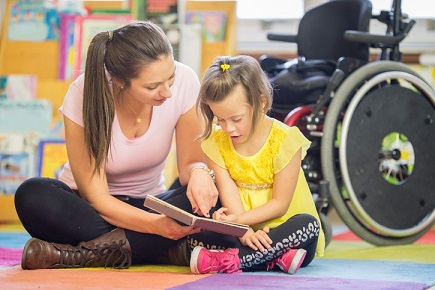
On Tuesday, NSW Labor announced its plan to better support students with specific learning needs, including hiring an additional 150 support education teachers and frontline professional support staff.
There are more than 134,000 students in NSW who require personalised learning and support because of a disability or other specific learning need. These students make up approximately 14% of the state’s entire public school population.
Labor’s plan will see 100 additional specialist teachers, 30 disability and specific learning support staff, 20 teachers to support with transition, expanded training for teachers and improved access to the Assisted School Travel Program.
David Roy, a lecturer at the University of Newcastle who works closely with governments and disability advocacy groups, welcomed the plan.
“This is the start of a long process that all major parties are realising needs to happen if we’re going to create equity for all students in NSW and Australia,” Roy told The Educator.
“Labor is recognising the pragmatic reality that there are schools for specific purpose. We need to immediately target and support students and teachers in mainstream schools to meet the inclusion and equity requirements that we are duty bound to as a nation through the United Nations.”
Roy said the pledge of 20 additional support teachers was particularly heartening because it recognises that many students have specific education needs and need to be supported, not just those with a disability.
“This is moving away from the segregated special needs language and model, which is a big step forward,” he said.
“When you build that into the NSW [Liberal] Government’s new disability strategy, both parties are starting to recognise that we must create an equitable education system that deals with the key issues of disability and disadvantage.”
Therapy animals to be trailed
In its announcement on Tuesday, NSW Labor also pledged a pilot a program of therapy animals in Schools for Specific Purposes (SSPs).
Animal-assisted therapy has been shown to help students physically and emotionally and has improved physical mobility, reduce anxiety, and improve social and emotional literacy.
Roy said this was “a massive leap forward” for politicians to be thinking this way.
“Some libraries have introduced reading dogs for students who lack confidence in their reading and literacy. These students read a book at their level to a dog, and this has been shown to have a significant impact,” he said.
Roy said one of the biggest barriers, particularly for students with a disability who are engaging with the curriculum, is the anxiety that the education system creates for them.
“This is because these children know the barriers they face. So, bringing therapy animals into SSP’s as a trial – and I’m sure they’re doing this first to see if they can then bring them into mainstream schools – can only benefit all participants,” he said.
“I’ve seen it in action, and it works. It’s a wonderful way of therapy which is non-intrusive and empowering people – but it does have to be managed carefully for all who are involved.”
Inclusive education on the rise
Roy said that Labor will no longer be creating any new SSP’s and to include children with a disability in mainstream education as a long-term goal.
“However, this also recognises the pragmatic reality that we must make these changes in a way that involves all stakeholders in a positive experience for it to work,” he said.
“The Liberal Party are also concerned about the number of SSPs and want to see as much inclusion of children with a disability into the mainstream as possible.”
Roy said the recent announcement of a funding boost for early childhood education is another example which shows that education is becoming “a key election battleground in which everyone will benefit”.


